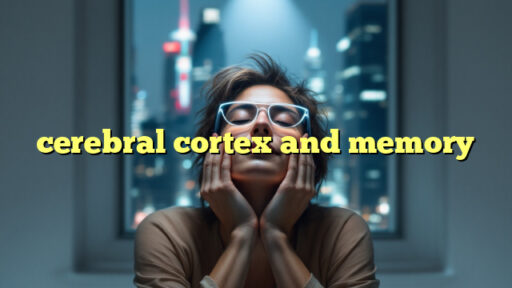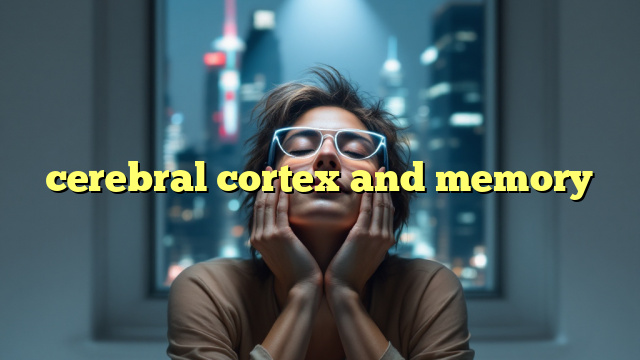When we talk about memory, we often refer to the brain's ability to store and retrieve information. However, the process of memory formation is far more intricate than just simple retention. The cerebral cortex, the outer layer of the brain, plays a crucial role in memory formation and retrieval.
What is the Cerebral Cortex?
The cerebral cortex is the largest part of the human brain and is responsible for higher brain functions such as thought, perception, and memory. It is divided into four lobes: frontal, parietal, temporal, and occipital. Each lobe has specific functions, but they all work together in memory formation.
How Does the Cerebral Cortex Influence Memory?
The cerebral cortex interacts with other brain regions, such as the hippocampus and amygdala, to form and retrieve memories. The prefrontal cortex, located in the frontal lobe, is particularly important for working memory and executive functions. It helps us hold and manipulate information in the short term.
The temporal lobe, on the other hand, plays a crucial role in long-term memory formation. The hippocampus, nestled deep within the temporal lobe, is vital for the consolidation of memories. It helps convert short-term memories into long-term memories that can be retrieved later.
Neural Pathways in Memory Formation
When we experience something new, such as learning a new skill or meeting someone for the first time, our brain creates neural pathways to encode the memory. These pathways involve the communication between neurons in different regions of the brain, including the cerebral cortex.
Research has shown that the cerebral cortex undergoes changes as memories are formed. Neuronal connections strengthen and weaken as memories are reinforced through repetition or emotional significance. This process, known as synaptic plasticity, is essential for memory storage and retrieval.
The Impact of Aging on Memory
As we age, the cerebral cortex undergoes changes that can affect memory. Some research suggests that the frontal cortex, which is crucial for working memory, may shrink with age. This could lead to difficulties in maintaining attention and processing information.
The temporal lobe, responsible for long-term memory, may also show age-related changes. The hippocampus, in particular, is vulnerable to the effects of aging and neurodegenerative diseases such as Alzheimer's. This can impair the formation and retrieval of memories, leading to memory loss.
Conclusion
The cerebral cortex plays a crucial role in memory formation and retrieval. Its interaction with other brain regions, such as the hippocampus and amygdala, is essential for encoding and consolidating memories. Understanding the complex mechanisms of memory formation can help us develop new therapies for memory disorders and improve our cognitive functions.
FAQs
1. Can memory loss be reversed?
While some forms of memory loss can be reversible, such as those caused by medication or temporary stress, others may be more permanent. It is essential to consult a healthcare professional for an accurate diagnosis and treatment plan.
2. How can I improve my memory?
There are several ways to enhance memory, including regular physical exercise, a balanced diet, adequate sleep, and mental stimulation. Cognitive training and memory exercises can also help improve memory function.
3. How does stress affect memory?
Chronic stress can have a detrimental effect on memory due to the release of stress hormones such as cortisol. Prolonged exposure to stress can impair memory formation and retrieval, so it is essential to manage stress effectively through relaxation techniques and self-care.
Unlock Your Mental Potential




